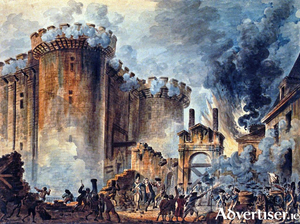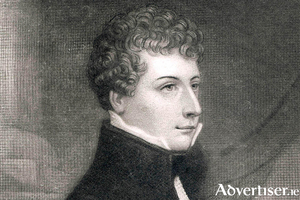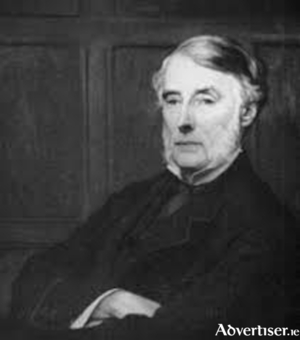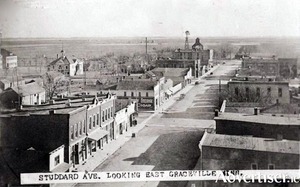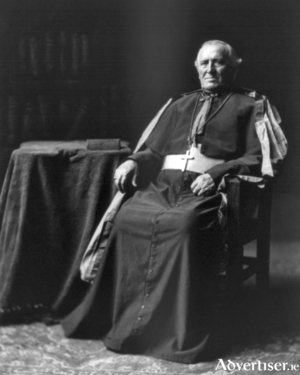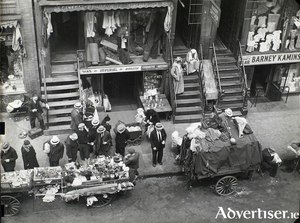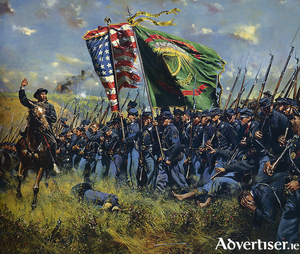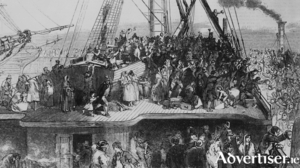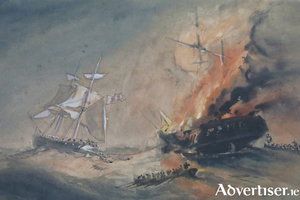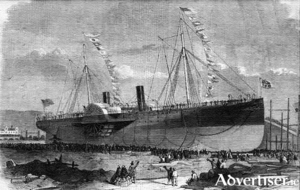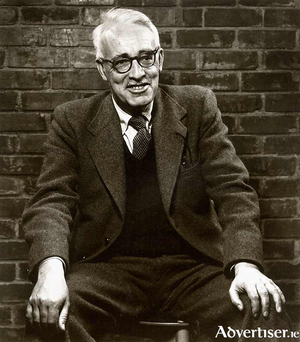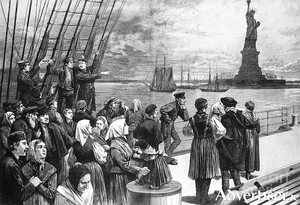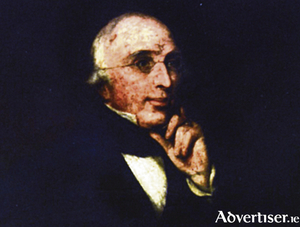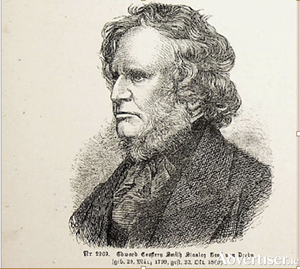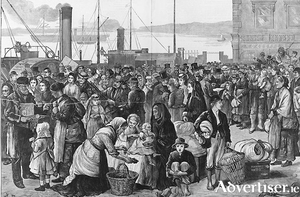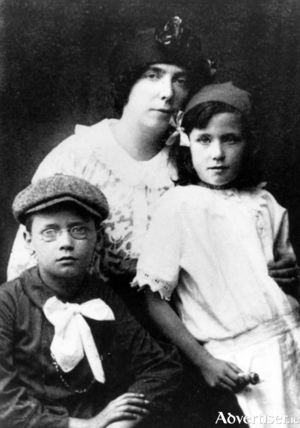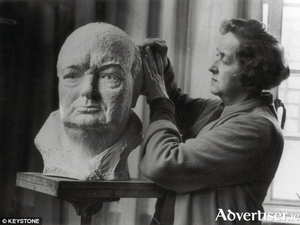The turbulent life of Col Richard Martin MP - In three acts
Thu, Nov 25, 2021
Week IV. Further humiliation was heaped upon Colonel Richard Martin, who sought redress for the ‘dishonour to his bed, the alienation of his wife’s affection, the destruction of his domestic comfort, the suspicion cast upon the legitimacy of the wife’s offspring, and the mental anguish which the husband suffers’ (such was the legal language of the day), during his divorce trial against John Petrie, to be awarded only £10,000., exactly half of the £20,000. which he felt justified in demanding.
Read more ...‘The best security for the honour of a wife, is prudence on the part of the husband.’
Thu, Nov 18, 2021
Week III. It took two years since Col Richard Martin’s wife Eliza eloped with John Petrie, a merchant, before the long process of divorce in the 18th century could begin. It promised to be a sensational case given the status of Martin, a larger than life character, one of the largest landowners in Ireland, his reputation as duellist, and his enormous popularity for his gift of mimicry and acting.
Read more ...The French Revolution and the revolution in the Martin household
Thu, Nov 11, 2021
On the afternoon of July 14 1789 a mob unleashed its fury and frustration by forcing an entry into the Bastille, a medieval armoury, fortress and political prison in the centre of Paris. In the short but bloody battle that ensued some 98 of the mob were killed, as were three officers of the guard. Three more were lynched, and Marquis de Launay, governor of the prison, and the local mayor, Prevot de Flesselles, who had pleaded for peace, were stabbed to death and beheaded. Although the prison contained only seven inmates at the time of the storming, it was seen as a symbol of the monarchy’s abuse of power. It was the flashpoint of the French Revolution.
Read more ...Wolfe Tone’s passionate love affair with Mrs Eliza Martin
Thu, Nov 04, 2021
One of the most intriguing pieces of theatrical memorabilia in Galway is the poster for two plays, Douglas and All the World’s a Stage, to be performed at Richard Martin’s theatre, Kirwan’s Lane, on Friday August 8 1783. The playbill shows the cast with included Martin himself, his wife Eliza (Elizabeth Vessey) and Theobald Wolfe Tone, who would become Ireland’s famous revolutionary, associated with the French inspired 1798 rebellion.
Read more ...‘For the first time ever I felt fear in the theatre’
Thu, Oct 28, 2021
‘After a pantomime rehearsal one year I was asked to lock up as the director was in a hurry. A young lady asked me to allow her stay another while in the old Green Room to finish her costume. I reluctantly agreed, telling her to make sure that the lights and heaters were off before she left.
Read more ...Mr Tuke’s Fund
Wed, Oct 20, 2021
One of the reasons for the success of Mr Tuke’s Fund, which sponsored emigrants to America and Canada in the 1880s, was that as far as possible Tuke personally interviewed those wishing to go. He insisted that only families with at least one member capable of hard, physical work could participate. Proper clothes and money were provided to start their new life, and arrangements made in advance where they would stay and find work.
Read more ...‘Connemaras’ struggled to survive on the mid-west plains of Minnesota
Wed, Oct 13, 2021
The 309 Connemara emigrants, selected by their local clergy as suitable for a new life in America, arrived at Boston June 14 1880, 11 days after departure from Galway Bay on the SS Austrian, an Allen Line ship. The settling of ‘The Connemaras’, as they became known, was a new venture prompted by a Liverpool priest, Fr Patrick Nugent renowned for his ‘philantropic and truly patriotic exertions to alleviate the social conditions of his fellow countrymen in England’; and Archbishop John Ireland, of St Paul, Minnesota, who was already settling thousands of Irish Catholics who were trapped in the ghettoes of New York and elsewhere, on rich prairie lands.
Read more ...Should the Irish diaspora have remained at home to fight the good fight?
Wed, Oct 06, 2021
Although assisted emigration was frowned upon by some bishops and by the Land League leaders Michael Davitt and Charles S Parnell, there were some assisted schemes that were carefully planned, and in many cases worked well. The schemes that worked best were those which helped Irish families to avoid settlement in the great eastern cities of America where large numbers were caught in huge, stinking slums where it could take a generation or two to escape from.
Read more ...Despite harrowing beginnings, the Irish in America are a success story
Wed, Sep 29, 2021
In the 1860s, 20 years after Charles Dickens expressed his disgust at the living conditions in the vastly over-crowded tenements of New York’s ‘Five Points’, in Lr East Side, the situation simply got worse.
Read more ...The American Civil War helped the Irish find acceptence
Wed, Sep 22, 2021
When Charles Dickens first visited the United States in January 1842, the popularity of his books was such that he was mobbed by adoring crowds, feted and dined as the major celebrity that he undoubtedly was, and was guest of honour at a famous Valentine’s Ball in New York attended by 3,000 of the city’s great and good.
Read more ...A time when the Irish were not welcome
Wed, Sep 15, 2021
Between the years 1845 and 1855 more than 2.1 million people emigrated from Ireland. They streamed into Liverpool, Manchester, Boston and New York. Many were diseased, hungry, dirty, broken spirited, with barely any personal belongings. Some embarked actually naked.
Read more ...An astonishing rescue
Wed, Sep 08, 2021
There can be no greater horror for passengers and crew than facing death on a burning ship in a heavy sea, that was sinking by its bow. Which death would you choose? Stay on board and be burnt? Or chance your luck in the waves?
Read more ...Galway’s ‘Titanic’ burst into flames in the Atlantic
Wed, Sep 01, 2021
On Saturday October 6 1860 approximately one hundred miles out from Boston, the PS Connaught, one of the biggest and most spectacular transatlantic ships of its day, hit a storm, and sprung a leak. As water poured into the engine room, an auxiliary coal-fired engine was started which sparked a fire which rapidly spread out of control. Flames and smoke forced the 591 passengers and crew on to the top deck.
Read more ...The west of Ireland lacks civilisation – But it has poetry
Wed, Aug 25, 2021
‘The capital, Galway, is a terrible place. It has of course St Nicholas, one of the few remaining preReformation churches; the frontispiece of a Renaissance town house erected as a gateway to the public park; and a medieval fortified house about which they tell the well-known story of the Lynch who hanged his own son when the sheriff wasn't available. At least once a year while I was director of the Abbey theatre we got a play on that. From Miss Edgeworth's account of her travels to Galway it would appear that as a theme for tragedy it was popular a hundred years ago. But even before that I had a lively hatred of the town....'
Read more ...For a while Galway dreamed of greatness
Wed, Aug 18, 2021
“...give me your tired, your poor,
Your huddled masses yearning to breathe free,
The extraordinary Fr Peter Daly walks on to the Galway Stage
Wed, Aug 11, 2021
In the early decades of the 19th century fortunes were made in giving hundreds of thousands of emigrants safe passage to America. As the decades slipped by the numbers grew into millions. Liverpool had the main transatlantic business for these two islands, but Galway, situated some 300 miles closer to America, and with the onset of powerful steam-driven ships, believed that a better and quicker service could be provided.
Read more ...A hero’s welcome in New York for first Galway Line ship
Wed, Aug 04, 2021
The unfortunate collision of the Indian Empire into the well marked Margaretta Rock in the middle of Galway Bay was a blow to the newly established Galway Line. But by no means was it a knockout. Galway’s vaulting ambition to open a new ‘highway between the old and new worlds’ took on an even more determined energy. The exploitation of steam-power, driving ever bigger ships and faster trains, led to wild speculation as to what could be achieved even from Galway, in the middle of the 19th century.
Read more ...Did a midsummer murder silence a guilty pilot?
Wed, Jul 28, 2021
In June 1858 Galway town was in a fever of wild speculation and excitement. Its vision for a magnificent transatlantic port off Furbo, reaching deep into Galway Bay, where passengers from Britain, and throughout the island of Ireland, would be brought to their emigration ship in the comfort of a train, now faced being scuppered by the apparent criminal intent of the two local pilots.
Read more ...A Galway story that intrigued James Joyce
Wed, Jul 21, 2021
New plans projected over a 20 year period will see the inner lands of Galway harbour developed into an attractive commercial and residential area, while reclaimed land from the sea will push out harbour facilities into deep water to accommodate shipping connections to European ports and elsewhere. It is a long over due and worthwhile plan, but it pales almost into insignificance compared to the vaulting ambitions the Galway merchants schemed in the mid 19th century.
Read more ...‘If my sins were many they were interesting’
Wed, Jul 14, 2021
The Lausanne Conference of July 1932, attended by the former allied powers of World War I (Britain, France, Belgium and Italy), and Germany, accepted that the world economic crisis made continued reparations by Germany virtually impossible. Various long-term arrangements were made, but in effect it allowed Germany off the hook for the monetary compensation it had agreed to pay for its responsibility in starting the war. Germany was now free to rebuild its own economy. This was a very importance conference attended by the world press, among whom was Clare Sheridan.
Read more ...

